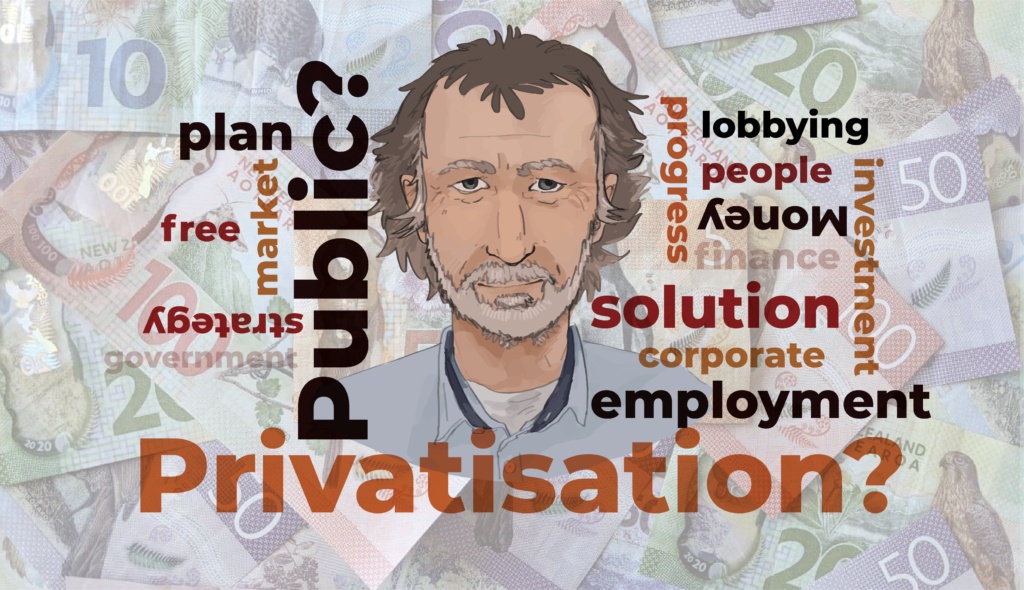
On the risks of privatisation of public assets
In a capitalist society like ours, there is a constant battle fought by private interests to carve out greater flows of value by claiming stakes and entitlements to sectors of public life and services and convert these rights into tradable assets sold to shareholders. This battle is aided by political forces wishing to bring the efficiency and capital to bear that private business herald as their advantage. And sure, profit-oriented businesses have to be efficient to compete, which generally should lead to lower cost of the services provided. Often privatisation is driven by economic conditions. At times of economic hardship for the public sector, the lure of private money taking on tasks that were paid for by taxpayer funds is especially tempting. And sometimes political pressure by parties working predominantly for the capitalist elite steer public services deliberately into the waiting arms of large corporate interests.
However, when it comes to the important strategic public services such as education, healthcare, electricity, roading, public transport, 3-waters, or universal accident insurance, private ownership often generates strategic aims that run contrary to the needs and desires of the population and the future direction of the country. These sectors have the need to be directed in the interest of the people and the planet and not in the interest of profit optimisation for private shareholders.
Electricity generation is a point in case. Climate change demands a move away from fossil fuels and investment in alternative energy generation and a running of the system for the optimisation of non-fossil fuel use over the optimisation of profit. While the news of rapidly deploying grid size solar farms is excellent news, this is only happening because solar energy is now the cheapest form of electricity generation and can outcompete coal and other fossil fuels on price. If this was not the case, then the privatised electricity generators had an incentive to keep capitalising on their legacy fossil fuel generators. In fact, at the moment the traditional electricity generators have several large wind farms already consented for years but not actually built with some consents already running out, because it is seemingly more profitable for them to keep running fossil fuel power plants despite the overarching imperative to decarbonise electricity generation.
Healthcare is a particular concern. Obviously, our healthcare system has been in crisis mode for a long time now. The public sector has underfunded healthcare with the result that nurses and doctors emigrate to higher wage countries abroad and the ‘low pay and hard work’ conditions fail to attract sufficient recruits into the system. However, here in particular, it would be very important to resist privatisation pressures that might emerge if a change of government brings investor interests closer to the halls of parliament again. What happens when a country privatises most of its healthcare system can be seen in the USA, where a hospitalisation for Covid has in many cases bankrupted the survivors and their families and where private insurance cover is unaffordable for many and existing conditions make many patients unable to even be insured. And especially our ACC insurance is a public good we should not let go to private hands. The latter was already in the discussion in the first decade of this century under the National government of the day and we need to be prepared that the long arms of private money makers have not yet given up the hope to one day be gifted ACC and the income streams they would carve from it by a government that is sympathetic to their wishes.
Also, the demise of rail transport under the privatisation of the day is another cautionary tale. Rail services are an essential asset for a low-energy future. Yet present-day profit motives have resulted in the gutting of the services and in profit extraction where investment in the future would have been appropriate.
With the upcoming election it will be important to quiz the parties and their candidates on their policies with regard to the privatisation of the public sector. While public-private partnerships in the fulfilment of public services are often very beneficial, it is the ownership and governance of these services that must remain firmly in public hands. The assets themselves and their direction must remain working for long-term public interests and the security of future generations. A resilient society must defend its public assets against privatisation if it wants to retain the hope for a future that is socially and ecologically sustainable.
– Words by Thomas Everth, Teacher Researcher






